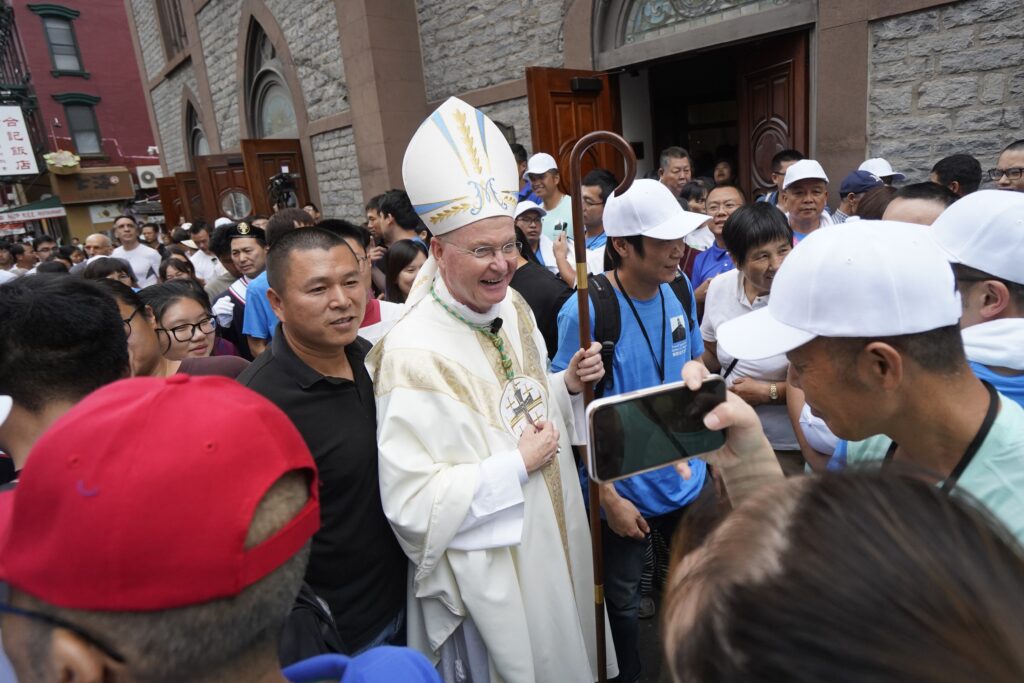
International Clergy Face Visa Headwinds in the Archdiocese, Bishop Says
By: Steven Schwankert
“Write to elected officials,” Bishop Whalen implores archdiocese Catholics

The ability of the Church in the United States to welcome international clergy members to serve in the Archdiocese of New York and elsewhere is under threat, Auxiliary Bishop Edmund J. Whalen, Vicar for Clergy, told The Good Newsroom in an interview.
“We would not be able to maintain the service in the parishes that we provide were it not for our international priests,” Bishop Whalen said.
“It’s not just us. It’s a nationwide problem, which is why everyone is grateful that Bishop Sweeney has taken the lead with this lawsuit, and I give him a lot of credit,” he said.
On August 8, Bishop Kevin J. Sweeney, the bishop of the Diocese of Paterson, and five diocesan priests filed suit against the State Department, the Department of Homeland Security, and the U.S. Citizenship and Immigration Services, alleging that the process used to determine visa eligibility for priests is unlawful.
The R-1 nonimmigrant religious worker visa allows foreign nationals to work temporarily in the United States in a religious vocation or occupation. The visa is intended for ministers, religious workers, and members of religious orders.
To qualify, applicants “must have been a member of a religious denomination that has a bona fide, non-profit religious organization in the U.S. for at least two years immediately preceding the application,” according to the U.S. Citizenship and Immigration Services (USCIS) website. R-1 visas are valid for an initial period of up to 30 months and can be extended for an additional 30 months, for a maximum stay of 60 months. The visa holder must maintain a residence abroad that they have no intention of abandoning.
“The R-1, the religious worker visa, is tied to your employer, so other religions where they may have another job and they are a preacher on Sunday, that other job will be how they come in. A religious worker visa is the only way that our people can enter the country – and the real and vital reason they are coming. It’s based on your employer, so it is tied to the archdiocese and tied to a parish,” Bishop Whalen said.
Bishop Whalen said that visa renewals are backed up six to nine months, with delays caused by the COVID-19 pandemic often being cited as the reason for longer waiting periods.
He encouraged Catholics within the Archdiocese of New York and elsewhere to contact their elected officials at the federal level, namely Congresspeople and Senators but also the White House, to address the issue.
“Write to your elected officials both local and national. Pressure your elected officials,” Bishop Whalen said.

